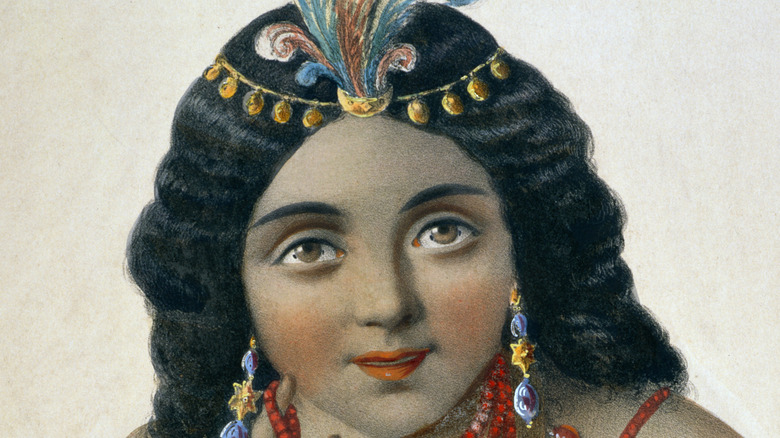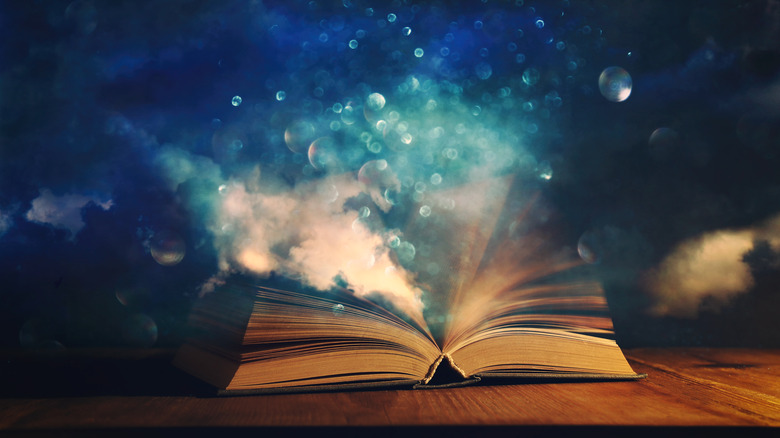The Myth About Pocahontas You Need To Stop Believing
American culture is steeped in tradition, custom, convention, and... lies? Indeed, that is the case when it comes to some of our nation's most widely spread, and often misunderstood, tales of old. These traditional fables were sometimes exaggerated in order to teach cautionary lessons or to preserve long-held, outlandish beliefs. Brainscape reports that, in the case of Pocahontas, the writings were warped completely out of context, painting an overly optimistic portrait of a much more sinister event.
If you scan your childhood memories, you might recall a legendary love story set on the lush landscape of North America. It is one where a Native American woman fell madly in love with a Jamestown settler who allegedly set out to obliterate her people but, through her love, found his heart of gold. It comes complete with a vibrant, earth-toned backdrop, scantily-clad Native American women performing stereotypical tasks, large musical ensembles, and songs about wind.
From a purely entertainment-driven perspective, it's almost impossible not to be drawn in by these two star-crossed lovers, whose adoration for one another is enough to end wars and save rainforests. Too bad that version of Pocahontas couldn't be further from the truth.
According to myth, Pocahontas and John Smith were madly in love, but history tells us otherwise
The world according to fairy tales is a difficult one to navigate. This is by design. Fairy tales and tall tales are intentionally over-optimistic. They are an attempt to create captivating characters that are larger than life (via Wonderopolis). It would seem there could be no harm done from stretching the truth a little, or even a lot, particularly if audience members and/or readers understand what's happening. The tragic tale of Pocahontas beautifully illustrates the harms of reimagining a historical figure's life through a pair of rose-colored lenses painted in your favorite shade of Disney.
Thanks to some crafty storytelling techniques, most Americans wrongly believe that Pocahontas was a young woman who fell madly in love with a British "settler" who had good intentions underneath his war-stained military shirt. However, History reveals a different truth. In reality, a very young Native American girl, whose name was actually Matoaka, purportedly married John Smith under duress, and likely as a desperate attempt to save her village.
Brainscape goes on to explain that she was even kidnapped and forced to purchase her freedom through this marital arrangement. A Jamestown hostage herself, her virtuous acts to save her people from ruin and perhaps even to save Smith from stoning (an account that is still widely disputed) are dashed by this widely believed myth. Immortalized through image and song, its copyrights sold to the highest bidder and redistributed across some of the largest theme parks in the world, the Pocahontas story is desperately in need of revision.

